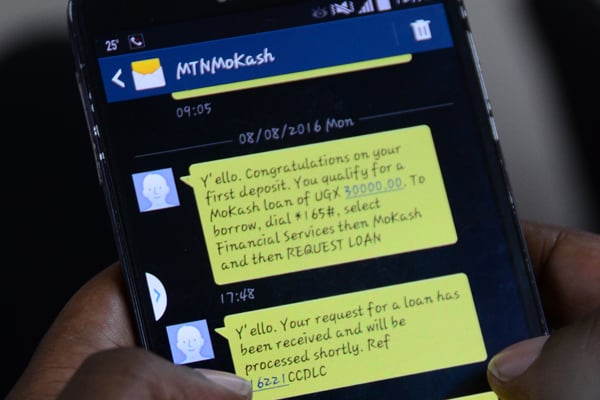
Mr Laban Musinguzi, the head of credit of business development, International Credit Rating Agency. PHOTO/File
|Prosper
Prime
What credit rating says about your company’s health
What you need to know:
In an interview with Prosper Magazine’s Racheal Nabisubi, Mr Laban Musinguzi, the head of credit of business development, at the agency explains reasons for credit rating.
Recently, a local-based rating agency- International Credit Rating Agency (ICRA) with more than 20 years of experience in the credit rating industry was opened up in Uganda. In an interview with Prosper Magazine’s Racheal Nabisubi, Mr Laban Musinguzi, the head of credit of business development, at the agency explains reasons for credit rating.
What is the difference between credit rating by ICRA and the Credit Reference Bureau?
Credit rating is a score or what can explain someone’s credit worthiness. How is someone or take for instance, Laban or a company X in position to get this much credit in a financial institution? What does a financial institution in itself have? Can it bear the risk according to credit? This is about the reputation or credit worthiness of a person.
The difference between credit rating by ICRA and the Credit Reference Bureau is quite big in technical terms because the CRB is just 5 percent of our report; meaning that ICRA has 95 percent which is different from the bureau.
The bureau does postmortem about what Laban has done on credit or what Company X is worth on credit. It will show you a report of how that entity has been able to service its debt.
On the other hand, ICRA gives you a score, rating and scale that shows you are credit worthy for a period of one year.
What are some of the things entailed in your report?
ICRA rating goes into depth of this entity or client. We do the quantitative and qualitative analysis where we consider the likes of the management structure, projections and audited books among others. It is a process. Therefore, we dissect the company or institution so that we can understand the 360 degree angle of that entity to come up with over a 50 pager report that can give confidence in the financial ecosystem where someone can bear a risk. This means we can look at your capital, the board, plans, whether you are compliant to Environmental Social and Governance (ESG ) issues, what is the length of your company- are you breathing or on life support? Are you in Intensive Care Unit (ICU) ; can you operate without life support? What is your equity?
If you are a financial institution, what is your non-performing book look like? You try to understand how you would look at yourself in the mirror. We go into all this financial information. We do not do it to castigate; we do it to provide a solution. This implies trying to find ways on how we can do things better within the organisation.
What do you expect from someone for you to rate their company and for you to be able to do your job?
When I talk about Rating, I am talking about five or four entities around the world. We are talking about global credit rating industry players such as Moody’s, Standard & Poor’s, and Fitch; these are known around in the market. This is what has been happening, you submit money, invoices and everything then someone comes here to rate you.
The difference on our side is that we are trying to understand the local market. Our economy is growing between 6 and 8 percent per annum or percent of economic growth. We are in a developing economy that has high-interest rates.
So, we approach this topic very sensitively in a way that we talk to the management and board from that level of the structure. We then ask for basic documents that we expect a company that has been operating for three years to have.
Documents such as certificate of incorporation, board resolution to rate, three-year financials, audited books of accounts, projections, trading licence and bank statements among others. These are things we believe should be available for operation. These are things we believe should be operating; the ease of doing business in the country should be brought back to the level where we want to see it achieve a single digit. We want to see Uganda being rated as a country that is easy to do business.
In that way, if we have rated entities, you automatically have the economy on your finger prints. That is why we have done strategic relationships with the Private Sector Foundation (PSFU). The private sector is the engine of the economic system because we understand that if we lubricate that engine, we shall be able to achieve it. This explains why the central bank has recognised ICRA as the first rating agency to be understood by the Central bank. We are still in negotiations.
To see how all this can come up with a framework with major stakeholders such as the Ministry of Finance, and other regulators such as Capital Markets Authority (CMA) and Uganda Microfinance Regulatory Authority (UMRA) among others.
Once you have given a company the rating, what next?
When you reach the level of being awarded a rating, we have different scales also known as rating scales. We have the AAA, AA and it goes upto D; meaning that it is divided into three different areas. If you are between probably AAA to a certain Group B or some that go through; you are looked at as an investable entity.
We also have those that are not looked into. We talk about those that are not performing well- per rating and would give up. But most importantly, we are looking at giving investors confidence. Every entity has investors at the end of the day; even government. To give confidence to these interested parties, the rating bring the whole of you out to all of those parties.
If I get into the technicalities, when it comes to the financial frameworks governing the whole world and the International Financial Reporting Standards (IFRS), we find that there must be a third party validator on your credit risk.
We have also seen the Central bank raise capital to about Shs150 billion of commercial banks. If Uganda Microfinance Regulatory Authority (UMRA) did the same for all financial institutions in Tier 4, it would be different. These are all things coming out to create awareness and show that the central bank is doing something right because international standards are shifting from Basel 2 to Basel 3. This means if you can’t manage the economy which is growing, merge with other people.
We have seen other banks either sloping down into other tiers to ensure that the economy can move. This is to ensure that a local company can compete globally with a company in America or globally.
How and where can a company use this rating?
Every financial institution will be ready to absorb that rating and so will every investor. ICRA operates in over five countries, meaning that we are all over the continent. This implies that you will be listened to.
Secondly, you will be internationally recognised. This puts you in a position to negotiate better interest rates on a credit line. We are talking about you sitting in a room with various credit analysts and credit people of the bank and you are giving them the credit ratings saying that look guys; I can manage to pay this in the next five or seven years which hasn’t been the case because we do not know the future of companies.
We have seen companies borrow money in and out of the country and are facing difficulties paying back. This could have been mitigated if these companies were rated. We have seen companies come to invest in our country who are not rated and they get sovereign exemptions, letters from the president, and various entities as guarantees but then these companies do not do anything in the long run.




